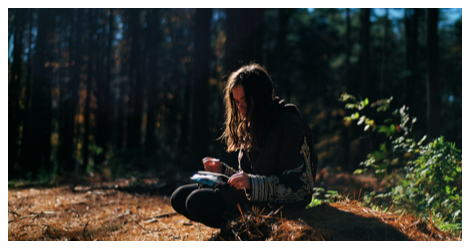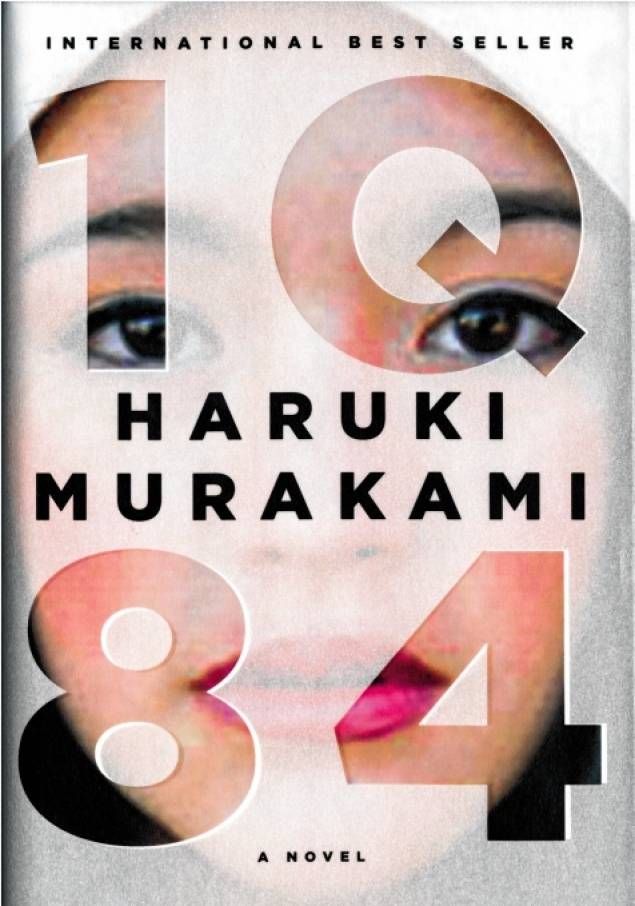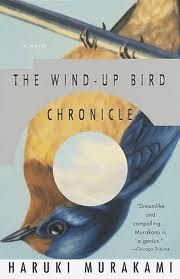
I See My Queer Self in Murakami’s Magical Realism
Kristen McDeavitt is a queer writer and backpacker. She has lived in California, Wyoming, Texas, and in Alaska on a glacier.
Twitter Handle: @songofmyselfie
I exist, and then again, I don’t. I’m not sure what my gender is, but I present as female. I am neither straight nor gay—I’m bisexual, but in a relationship with a man, so the world sees me as heterosexual. I live like a straight cis woman. And then again, I don’t. I shouldn’t exist, and yet here I am, writing and drinking coffee.
In a strange way, I’ve started to see myself in the novels of Haruki Murakami. It’s not that I identify with any of the characters, exactly. It’s that the queerness of his books, the weirdness I mean, fits into the confusing yet daily aspects of my life. My life is a kind of magical realism too.
How do I exist? What is my place in the constantly shifting world around me? These are questions Murakami’s protagonists grapple with in their own surreal lives. And yet they keep living them. They shop for groceries and meticulously prepare meals. They maintain an exercise routine, shower, shave, notice their stained clothes and take care to wash them. They do these things all while trying to find their vanishing wife, having magical wet dreams with real-life consequences, and spending inordinate amounts of time in wells.
In magical realism, the unbelievable is the ordinary. The characters and readers must immerse themselves in the extraordinary in order to move forward in the story. I view my bisexuality sort of like this. It is about more than just attraction—it is about being. If it were a simple matter of attraction, I would flip constantly between straight and gay. But that’s not what happens. I always am bi, regardless of my relationships. But it’s rare to find this kind of thinking in such a rigid world. Even within the queer community, only those who slide along the spectrum seem to understand this fluidity. And among bisexual people in “heterosexual” relationships, there often lies a deeply embedded and internalized biphobia—a hesitancy to express their queerness because it doesn’t matter. It isn’t relevant. They aren’t part of the group.
It’s not that I believe that one aspect of my gender or sexuality is imaginary—it’s that the rest of the world does. In Murakami’s novels, it’s not the characters who are strange, but the world around them. Once they realize this, they spend very little time fighting or disbelieving their fate. They see it almost immediately as true and adjust their lives accordingly. Their lives expand because of the queer things that happen to them.
 Coming to terms with her strange new world, one of the protagonists of 1Q84 suddenly states, “Either I’m funny or the world’s funny. I don’t know which. The bottle and lid don’t fit. It could be the bottle’s fault or the lid’s fault. In either case, there’s no denying that the fit is bad.” Aomame knows that she does not make sense in the “real” world any longer, but she does not panic; instead, she goes back to cutting a papaya. A different reality actually fits her better. In the end, it allows her to escape the loneliness that has plagued her whole life and meet her long-lost soulmate Tengo.
Coming to terms with her strange new world, one of the protagonists of 1Q84 suddenly states, “Either I’m funny or the world’s funny. I don’t know which. The bottle and lid don’t fit. It could be the bottle’s fault or the lid’s fault. In either case, there’s no denying that the fit is bad.” Aomame knows that she does not make sense in the “real” world any longer, but she does not panic; instead, she goes back to cutting a papaya. A different reality actually fits her better. In the end, it allows her to escape the loneliness that has plagued her whole life and meet her long-lost soulmate Tengo.
It is Aomame who names the new world IQ84, replacing the 9 with a Q. The Q stands for question mark, demarcating this parallel place as “a world that bears a question.” She must identify her world and her place in it, and she does so calmly, simply noting its unfamiliarity without losing herself to it. Although at first these worlds appear to be binary, simply opposites of each other, by the end of the novel Aomame and Tengo enter a third space, one that resembles the original with a few slight differences. This is not a negative twist though, because this world allows Aomame and Tengo a happy ending.
 While in 1Q84 there is a difference between the real and unreal worlds, not all of Murakami’s work is so clear-cut. The Wind-Up Bird Chronicle makes no such distinction. There are multitudes that all exist within one reality. There is the well, the dream, and overlapping pasts. The protagonist Toru passes from one world to the next, never quite sure which is real. In the end, none of these spaces are more real than another, and the story does not prioritize anything as truth. It also never explains many of its mysteries. The Wind-Up Bird Chronicle itself, a text that Toru discovers on a computer that reveals a part of many characters’ shared family histories, never tells us which part of it is fact and which is fable. The distinction is not made because it does not exist. That kind of clarification is irrelevant in a Murakami novel—in fact, it would detract from the storytelling.
While in 1Q84 there is a difference between the real and unreal worlds, not all of Murakami’s work is so clear-cut. The Wind-Up Bird Chronicle makes no such distinction. There are multitudes that all exist within one reality. There is the well, the dream, and overlapping pasts. The protagonist Toru passes from one world to the next, never quite sure which is real. In the end, none of these spaces are more real than another, and the story does not prioritize anything as truth. It also never explains many of its mysteries. The Wind-Up Bird Chronicle itself, a text that Toru discovers on a computer that reveals a part of many characters’ shared family histories, never tells us which part of it is fact and which is fable. The distinction is not made because it does not exist. That kind of clarification is irrelevant in a Murakami novel—in fact, it would detract from the storytelling.
I was introduced to Murakami at a critical point in my life. I read Norwegian Wood at twenty when I was still very new to dating and, probably because of this, starting to question my sexuality. Perhaps it is simply coincidence that these two things are linked in my mind, but for me, this moment of realization changed the way I saw the world and my interactions with it. My reality shifted; I suddenly started to act differently, to embrace the things within myself that I had repressed or shunned before. I wore different clothes that I liked more and felt comfortable in. I walked differently. I occupied a new space within my own body. I was able to embrace a new reality that I didn’t know existed, but one that had always been there, much like in IQ84 or The Wind-Up Bird Chronicle.
This timing somehow eased the transition, helping me to better see and finally embrace the queerness in the world around me. Murakami’s books are not for or about queer people. They aren’t even about weird people. But they are about strange things happening to ordinary people. Much in the same way that camp takes the straight world and makes it suddenly bizarre, magical realism alters the reality we are familiar with into something unusual and yet somehow understood. Camp as a genre is rooted in gay culture—I think magical realism belongs in queer culture.
Both camp and magical realism acknowledge the strangeness of life. Camp commands the viewer to celebrate this weirdness; magical realism, on the other hand, absorbs you into it. Magical realism does not ask questions, but admonishes you for asking. There is no one answer to what it means to be a queer individual. Each person must grapple with the complexities of their own identity. Stories can help us do this. And it is the strangest ones, the ones that understand how confusing the world truly is, that help us most.





